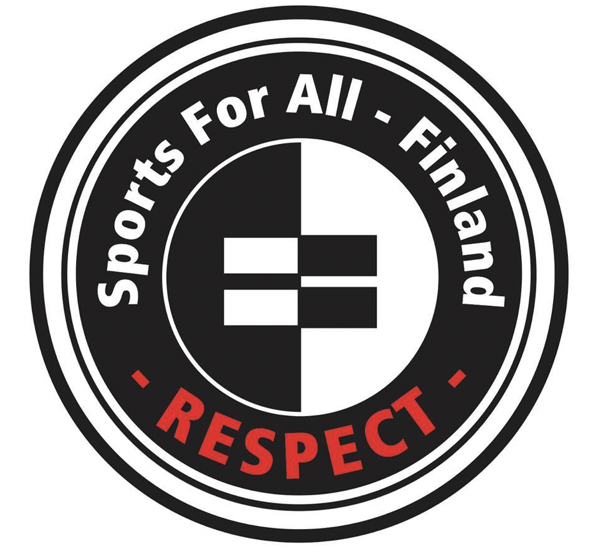Project: ERASMUS + Migrant Women in Sports
Together with our partners in Germany, Austria, Portugal, Holland, Greece and Hungary. Promoting women’s equality in sports.
Three amazing interviews: Challenges faced by migrant women in sports in Finland / Three amazing women, three stories
We conducted these interviews with three amazing women in Finland, as part of comparison research within the project. They will be published in 2021 together with the stories of women from all over Europe. We can’t wait to hear from our partner countries.
1. Areta Santos, Thai Boxer and Powerlifter
Areta Santos 25 years old, born in Mexico City, moved to Finland 3 as years old, student in IT.
What kind of sports do you participate in?
I did Thai-boxing for ten years and won bronze twice in the Finnish Championships. I took a break from boxing last autumn and got into powerlifting. Boxing was getting very time demanding and I also wanted to get into something new.
What makes you want to participate in sports?
I love to improve myself and see results in my development. It gives me calmness and makes me feel good. It gives me confidence
How do you see the situation regarding migrant and ethnic minority women in sports in Finland?
In Tai boxing age, gender and origin don’t matter much and that’s what I love about it. In some other sports there is a lot of bias and prejudice according to origin, like only black people are good in basketball and the same in negative ways too.
What challenges have you faced that have prevented you from participating in sports ?
Some people have prejudice towards powerlifting, saying it does not suit women. Also my own insecurities could be challenging at times. Transport used to be a challenge, sometimes I would have to travel 1.5 hours to get to a training or competition, but i loved my sports and gladly took it upon me. In my own group I was part of the team which I like, but when facing others in the competitions, suddenly I was the “stand out” because of my ethnicity. I am hoping that in the future, when groups and society will be more mixed, this will disappear.
What concrete challenges and difficulties can arise when it comes to the inclusion of migrant and ethnic minority women through sports and/or in sports?
As a migrant ethnic/minority woman you always have to prove yourself a little more and people pay more attention to color than to your work ethic and talent. You are never one of the team, you are always seen as the “ethnical girl”. There are a lot of micro-aggressions in the air, like jokes about “illegal immigrants” and exoticizing, or being addressed in English, questioning my “Finnishness” and entitlement to “belong”.
Would you like to add something important we missed to mention or to discuss?
I am hoping that in the future we can see everyone as an individual and as a sports person with talent and heart, not as somebody representing an ethnicity or culture.
2. Malyun Daqare, football player and coach, chairperson of United Youth Initiative
Malyun Daqare, born 1991 in - Jilip, Somalia, lives in Turku, Finland, Founder of fc turku stars
What kind of sports do you participate in?
I played football for Turku Div.1, I have been the only Somali woman so far in professional football in Finland. Now I am managing and coaching football, also men in the Somali community in Turku.
What makes you want to participate in sports?
I love sports, sports is my live, football is truly the only thing I enjoy. I played with the neighbour kids as long as I can remember. Now I want to continue and give back to the community.
How do you see the situation regarding migrant and ethnic minority women in sports in Finland?
There are lots of opportunities, but we need to do a lot of grassroots work and work with the parents and clubs and federations need to share more information to the communities. Many girls want to play, but they don’t know where to start. Families are more supportive now than before. There is not enough contact with the authorities to find out how to gain support for initiatives.
What challenges have you faced that have prevented you from participating in sports?
The community pressured my mom to stop me from playing, but my aunt told her that being in sports will keep me out of trouble, away from drugs and crime and then my mom started to support me.
What concrete challenges and difficulties can arise when it comes to the inclusion of migrant and ethnic minority women through sports and/or in sports?
Language problems. A lot in Finland is outdoors even in Winter, depending on the countries of origin it is a challenge to cope with the cold. Most problems with racism I hear from men’s teams, it does not seem to happen so much women football.
Would you like to add something important we missed to mention or to discuss?
We should treat everybody equal and give people the different support they need. We should make sure everybody is ok and not just assume things, even if somebody acts happy. People have different ways to express themselves.
3. Sarah Chime, basketballer and youth coach
Sarah Chime, born 2001 in Finland, lives in Helsinki
What kind of sports do you participate in?
Basketball, i played for 10 years and during the past 5 years in the Under 19 National team and I won the Finnish Championships once. I quit playing in a team about 6 months ago and now just go to the gym and do some running on my own and I am still student at the sports gymnasium where we do a lot of sports. I hope to join lower level leisure team just for fun with my friends soon. High performance sports took too much time and I felt I had potential in arts and other things in life, not just sports. I also coached migrant kids, most of them from Somalia and I loved to be a role model and to make positive impact in their life. I was still doing this but because of Covid-19 virus situation the activity has ended for the time being.
What makes you want to participate in sports?
First I joined because I felt pressed to have a hobby but soon I loved it because I made progress so quickly and I found community and I still have so many friends in basketball. Now I want to be in Sports because it makes me feel healthy and to be with friends.
How do you see the situation regarding migrant and ethnic minority women in sports in Finland?
When I was younger there were no role models, who looked like me to get orientation from, this is better now. Compared to men’s sports it still is not good enough though, because depending on different cultures not all families support their girls the same way they do with boys. There are also language barriers with most parents and sometimes with the girls too. Socioeconomically, in average, migrant families find it harder to cope with club and participation and equipment costs. Anyway, in basketball there are several clubs who are ready to help, but many times parents feel ashamed to even ask. There should be some ways to make sports accessible for all.
What challenges have you faced that have prevented you from participating in sports?
It used to turn me off when boys got preferential treatment, also male basketballers often used to be quite chauvinistic and tried to be dominant and often verbally abusive, as if girls were not to be taken serious about their sports.
What concrete challenges and difficulties can arise when it comes to the inclusion of migrant and ethnic minority women through sports and/or in sports?
I heard of some other types of harassment but I was spared from it. There was no straight forward racism but some weird commenting sometimes by coaches on the higher level. There is a low level of understanding of African hair in dominantly white societies. For example braids can be hurtful and heavy in sports and washing and taking care of hair in the shower room takes much longer than for European hair. Sometimes we are not given enough time and space in the shower rooms.
Would you like to add something important we missed to mention or to discuss?
We should be as one and not categorise too much, even though lived experience due to racism, socioeconomic factors and some practical aspects should be recognised.












